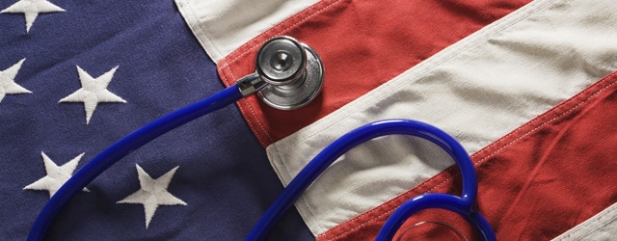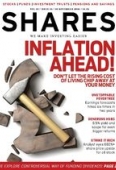Archived article
Please note that tax, investment, pension and ISA rules can change and the information and any views contained in this article may now be inaccurate.
‘Best buying opportunities’ for drugs stocks

One of the brains behind two highly successful pharmaceutical and biotech funds says a new US President could be good for the drugs sector, despite market concerns about the new leader imposing a price cap on drugs.
Sven Borho is the founding partner of investment firm OrbiMed which manages Biotech Growth Trust (BIOG) and Worldwide Healthcare Trust (WWH). Together these funds have nearly $2bn of assets under management.
The two investment products had enjoyed stellar share price success up until 2015 when Hillary Clinton started to voice her concerns about drug companies charging too much money for their products. They were subsequently were caught up in a sector-wide sell-off which saw shares prices de-rate across the board.
Speaking at an event in London on the eve of the US elections, Borho said political intervention in the drug sector could provide a great opportunity for investors.
‘Every single time politics was involved in healthcare, these were the best buying opportunities in the history of the sector,’ he commented.
Clinton’s vow to tackle ‘price gouging’
The Nasdaq Biotechnology index – which tracks more than 180 drug firms on the US stock market – fell by 5% immediately after a single comment on Twitter by Clinton in September 2015.
She said: ‘Price gouging like this in the specialty drug market is outrageous’ and promised a plan to ‘take it on’.
Her comment was in response to Turing Pharmaceuticals which acquired an old antiobiotic drug and subsequently raised its price by more than 50-fold.
Biotech Growth Trust has underperformed against the FTSE All-Share index in the year to date for the first time in history. Its performance was -3.7% compared to the All Share index’s 9% gain.
Annualised returns over the past three and five years are more positive at 19.9% and 32.8%.
In the year to date, Worldwide Healthcare Trust has nearly matched the All Share index at 8.8% and achieved annualised returns over the same three and five year period of 25.1% and 26.2%.
Are price caps achievable?
In August 2016, Clinton called for Mylan (MYL: NDQ) to drop the price of its EpiPen emergency allergy shot, resulting in a 6% decline in its share price and the pharmaceutical company promising to cut the cost.
Despite Clinton’s influence, Borho said in his presentation that he believed there would be no outright drug controls in the US. He argued legislative changes were required by a filibuster-proof majority in the Senate, which he did not see as an achievable feat.
Saxo Bank head of equity strategy Peter Garnry believes reforms could come in future years with Congress coming together to fix rising healthcare costs ‘because it’s squeezing the middle class family’.
Political rhetoric vs. information
OrbiMed has had to navigate the quick-fire response of the market from key players in the election concerning drug prices.
‘If you listen to politicians, you think drug pricing is outrageous and is spiralling out of control. However, the facts don’t match the political statements,’ said Borho.
Drug spending as a percentage of total healthcare costs over the past 50 years has remained stable at 10% with no huge inflation. That paints a different picture from the political rhetoric.
In his presentation, Borho claimed 90% of prescriptions in the US were for generic drugs. He said the remaining 10% were for branded pharmaceuticals.
He highlighted how the ways in which drug prices are reported do not tell the full story.
For example, last month American politician Bernie Sanders tweeted that Ariad Pharmaceuticals (ARIA:NDQ) raised the price of a leukaemia drug to nearly $199,000 a year. Borho countered that it cost Ariad $1.5bn to get the drug to market, which took 20 years and the firm spent more on research on development than it obtained in revenue.
Without higher drug prices, investing in new treatments to tackle diseases would become more difficult. ‘If you want to have the socialist nirvana of super-low drug prices, you have no innovation,’ argued the portfolio manager.
Generic drug makers under fire
Generic drug makers recently collapsed on the US stock market on speculation the US Justice Department’s probe into collusion would bring charges by the end of the year.
US prosecutors are undertaking a criminal investigation over suspected price collusion, which started two years ago and spans more than a dozen companies.
A barrage of negative news from politicians has created a ‘wall of worry’, creating an environment where investors are trimming their healthcare holdings.
This is reflected in the healthcare sector trading at a price to earnings discount to the S&P index of US stocks, which historically occurs during political interventions, according to Borho.
In 2008, the sector traded at a discount during the implementation of Obamacare, as well as between 1993 and 1994 under then-President Bill Clinton’s healthcare reform. (LMJ)
Important information:
These articles are provided by Shares magazine which is published by AJ Bell Media, a part of AJ Bell. Shares is not written by AJ Bell.
Shares is provided for your general information and use and is not a personal recommendation to invest. It is not intended to be relied upon by you in making or not making any investment decisions. The investments referred to in these articles will not be suitable for all investors. If in doubt please seek appropriate independent financial advice.
Investors acting on the information in these articles do so at their own risk and AJ Bell Media and its staff do not accept liability for losses suffered by investors as a result of their investment decisions.

 magazine
magazine









